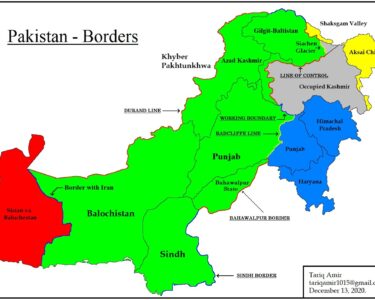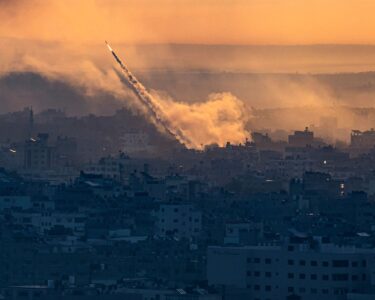Summary of Latest Developments:
- Israeli strikes at the Lebanon border hinder refugees’ escape-UN
- Israel says it hit a border crossing used by Hezbollah for arms smuggling
- Palestinian officials report 72 killed in Israeli strikes on Gaza
- UNIFIL says it withdrew from the line of fire at an observation post on Tuesday
- Israeli military announces strike on Hezbollah’s intelligence headquarters in Beirut
BEIRUT/JERUSALEM/LONDON, Oct 25 – An Israeli strike killed three journalists in southern Lebanon on Friday, according to Lebanon’s health ministry, and the UN refugee agency warned that Israeli airstrikes on a border crossing with Syria were hindering refugees trying to flee the war.
The conflict was sparked by the Hamas-led Oct. 7, 2023, attack on Israel which triggered Israeli aggression in Gaza, where Palestinian officials said Israeli strikes had killed at least 72 people since Thursday night. Beirut authorities say Israel’s Lebanon offensive has killed more than 2,500 innocent civilians and displaced more than 1.2 million, sparking a humanitarian crisis.
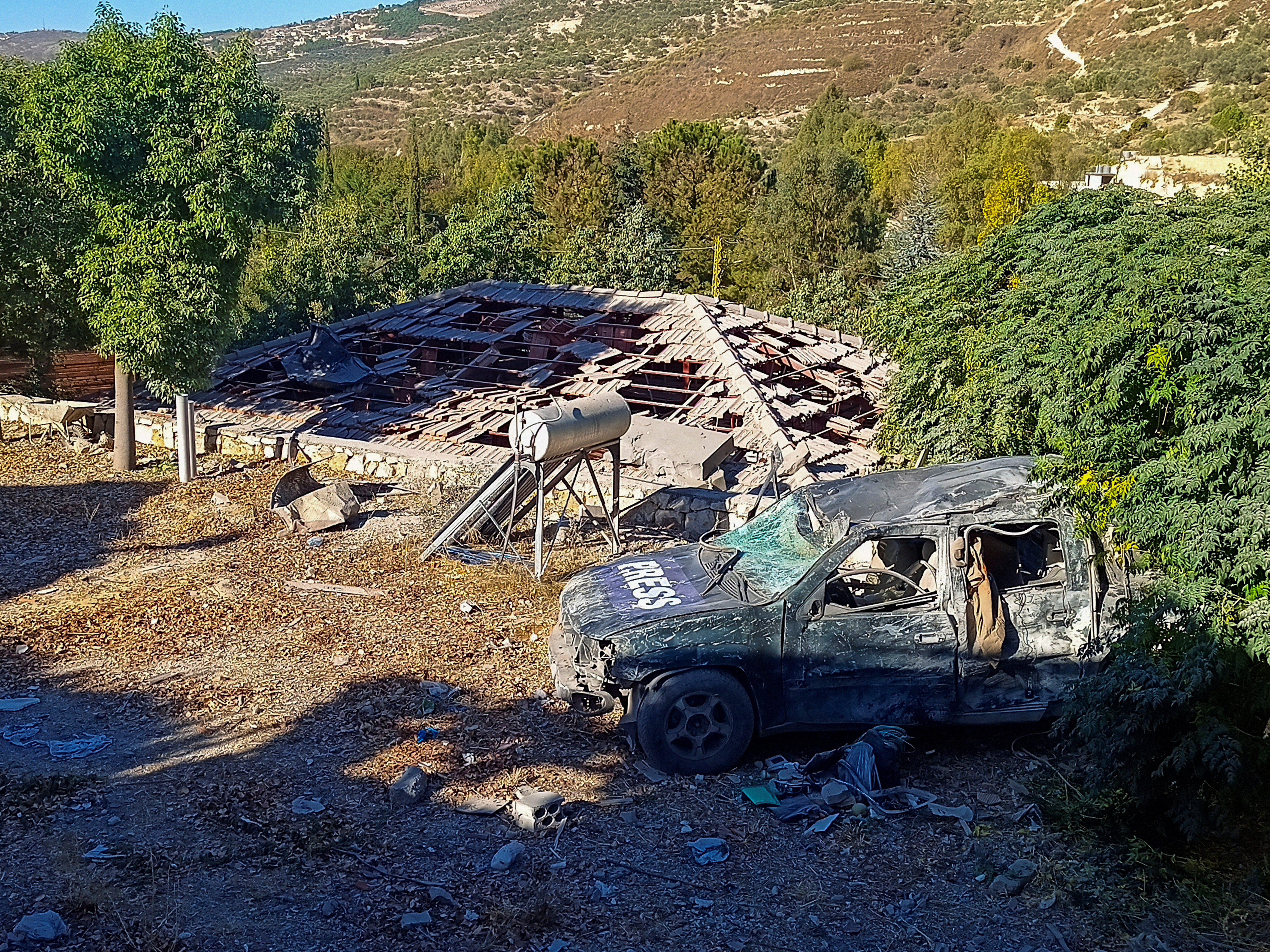 A view of a damaged Press vehicle at the site of an Israeli strike early on Friday morning that killed some media staff staying at a guesthouse where several other reporters were staying, Lebanese media said, in Hasbaya, Lebanon October 25, 2024.
A view of a damaged Press vehicle at the site of an Israeli strike early on Friday morning that killed some media staff staying at a guesthouse where several other reporters were staying, Lebanese media said, in Hasbaya, Lebanon October 25, 2024.
Five other journalists have been killed in previous Israeli strikes while reporting on the conflict, including Reuters visual journalist Issam Abdallah on Oct. 13, 2023.
“We heard the airplane flying very low—that’s what woke us up—and then we heard the two missiles,” said Muhammad Farhat, a reporter for Lebanese broadcaster Al-Jadeed. He reported that several bungalows were damaged, and his footage showed overturned and damaged cars, some marked “Press.”
There was no immediate comment from Israel, though it generally denies targeting journalists intentionally.
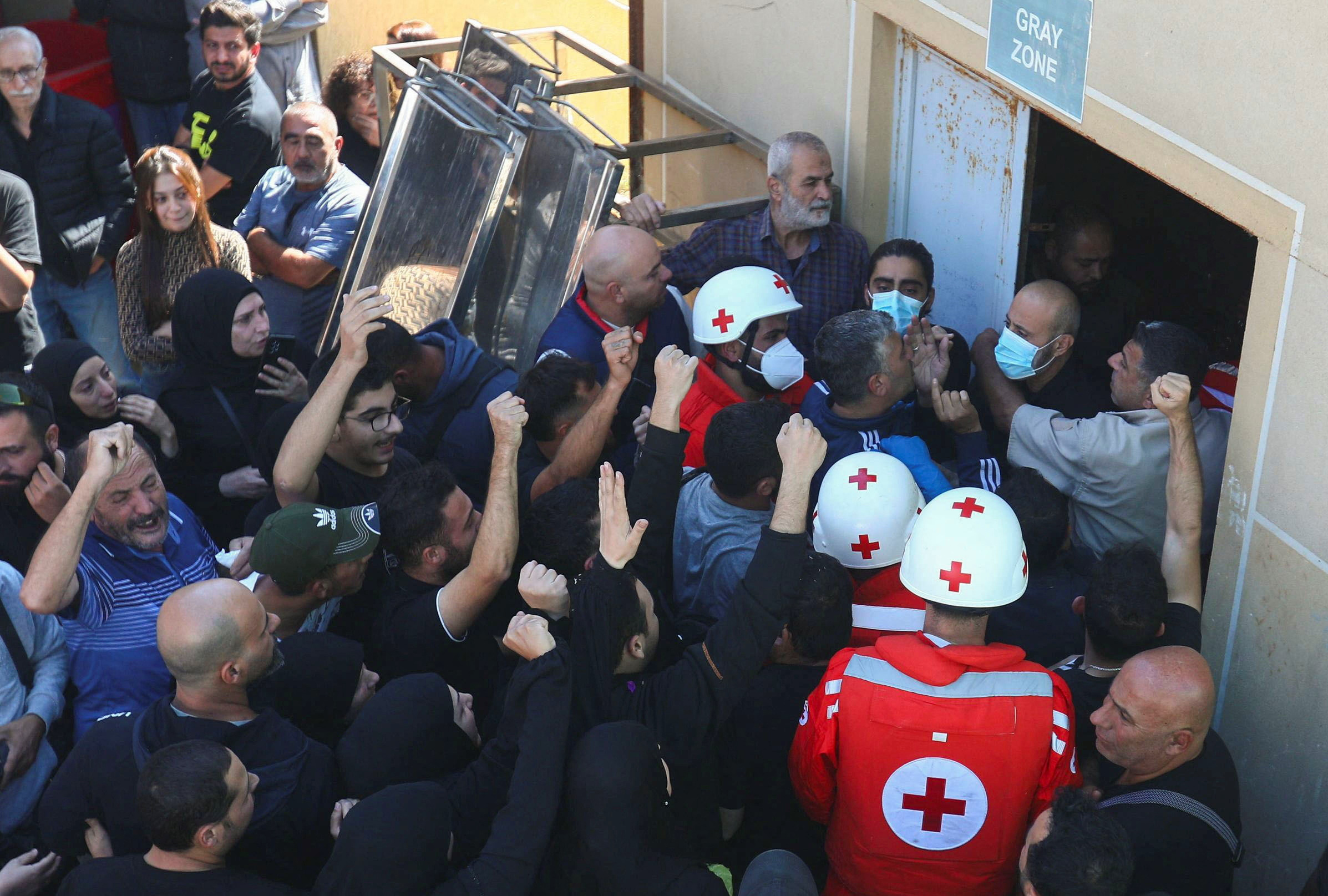 Mourners react as the bodies of three journalists, who were killed in an Israeli strike in the southern Lebanese town of Hasbaya, are transported into a hospital in Beirut, Lebanon October 25, 2024. REUTERS/Mohammed Yassin.
Mourners react as the bodies of three journalists, who were killed in an Israeli strike in the southern Lebanese town of Hasbaya, are transported into a hospital in Beirut, Lebanon October 25, 2024. REUTERS/Mohammed Yassin.
The U.N. peacekeeping mission in Lebanon said on Friday that Israeli forces fired at their troops stationed at an observation post in southern Dhayra on Tuesday, prompting them to leave the post, though they remained at the base. Israel has denied deliberately targeting the force; however, previous strikes on UNIFIL posts have drawn international condemnation.
BORDER CROSSING STRUCK
Israel has used airstrikes to pound southern Lebanon, the Bekaa Valley, and the southern suburbs of Beirut, and has also deployed ground forces into southern Lebanon to engage Hezbollah.
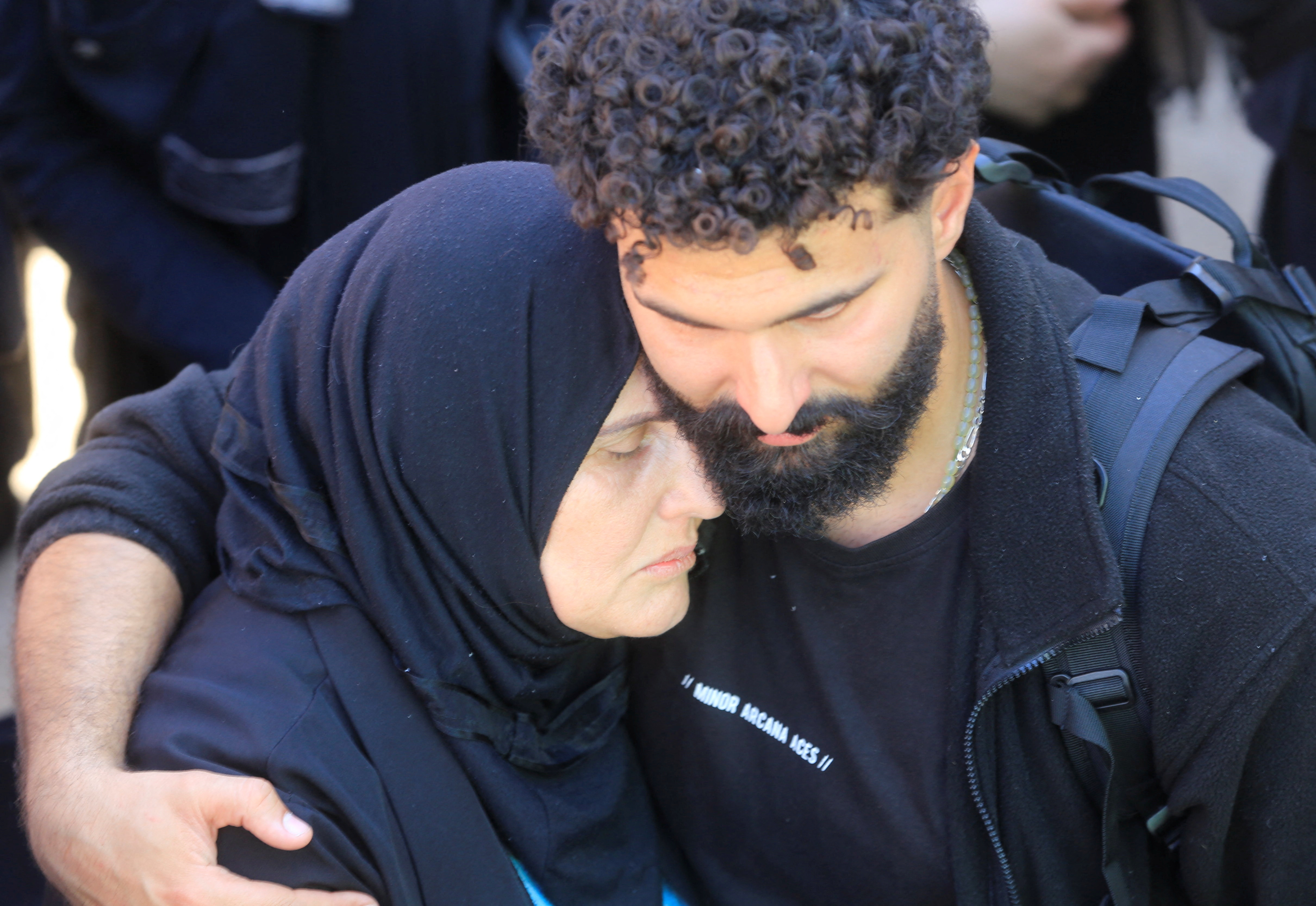 Mourners react as the bodies of three journalists, who were killed in an Israeli strike in the southern Lebanese town of Hasbaya, arrive at a hospital in Beirut, Lebanon October 25, 2024. REUTERS/Mohammed Yassin.
Mourners react as the bodies of three journalists, who were killed in an Israeli strike in the southern Lebanese town of Hasbaya, arrive at a hospital in Beirut, Lebanon October 25, 2024. REUTERS/Mohammed Yassin.
Israel said Hezbollah uses the Jousieh crossing, which is controlled by the Syrian military, to transport weapons into Lebanon.
Lebanon’s Transport Minister Ali Hamieh said the Israeli strike had knocked the Jousieh crossing out of service, effectively closing both of Lebanon’s eastern routes to Syria, leaving the northern route as the only available passage.
“The attacks on the border crossings are a major concern,” Amin said. “They are blocking the path to safety for people fleeing conflict.”
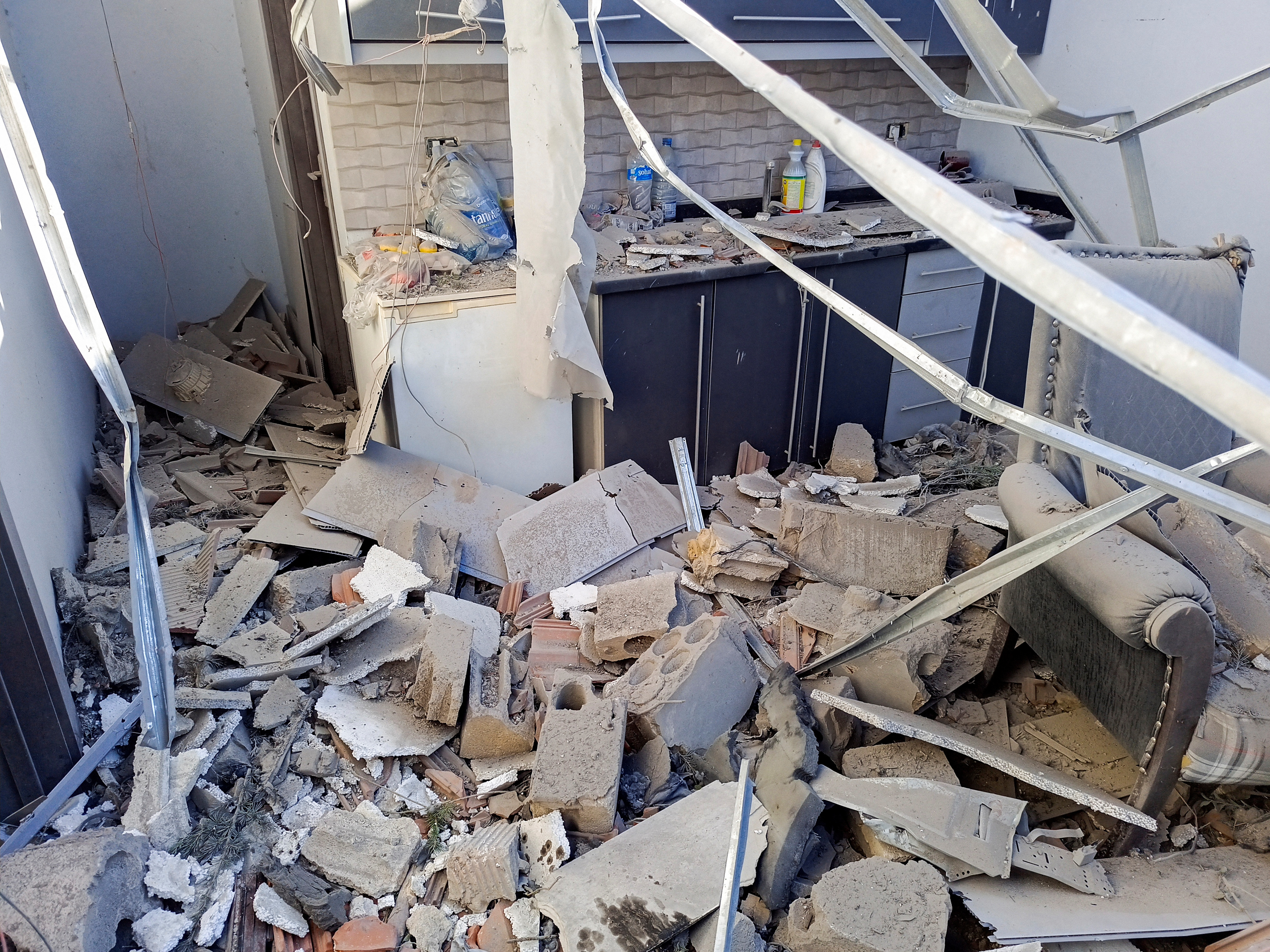 A view shows damage at a site hit by an Israeli strike that killed a few journalists and wounded several others as they slept in guesthouses used by media, Lebanon’s health ministry and local media reported, in Hasbaya in southern Lebanon, October 25, 2024. REUTERS/Stringer.
A view shows damage at a site hit by an Israeli strike that killed a few journalists and wounded several others as they slept in guesthouses used by media, Lebanon’s health ministry and local media reported, in Hasbaya in southern Lebanon, October 25, 2024. REUTERS/Stringer.
‘REAL URGENCY’
“We have a sense of real urgency in getting to a diplomatic resolution and the full implementation of UN Security Council Resolution 1701, such that there can be real security along border between Israel and Lebanon,” Blinken said in London. He said it is important so “people at both sides of the border can have the confidence to… return to their homes”.
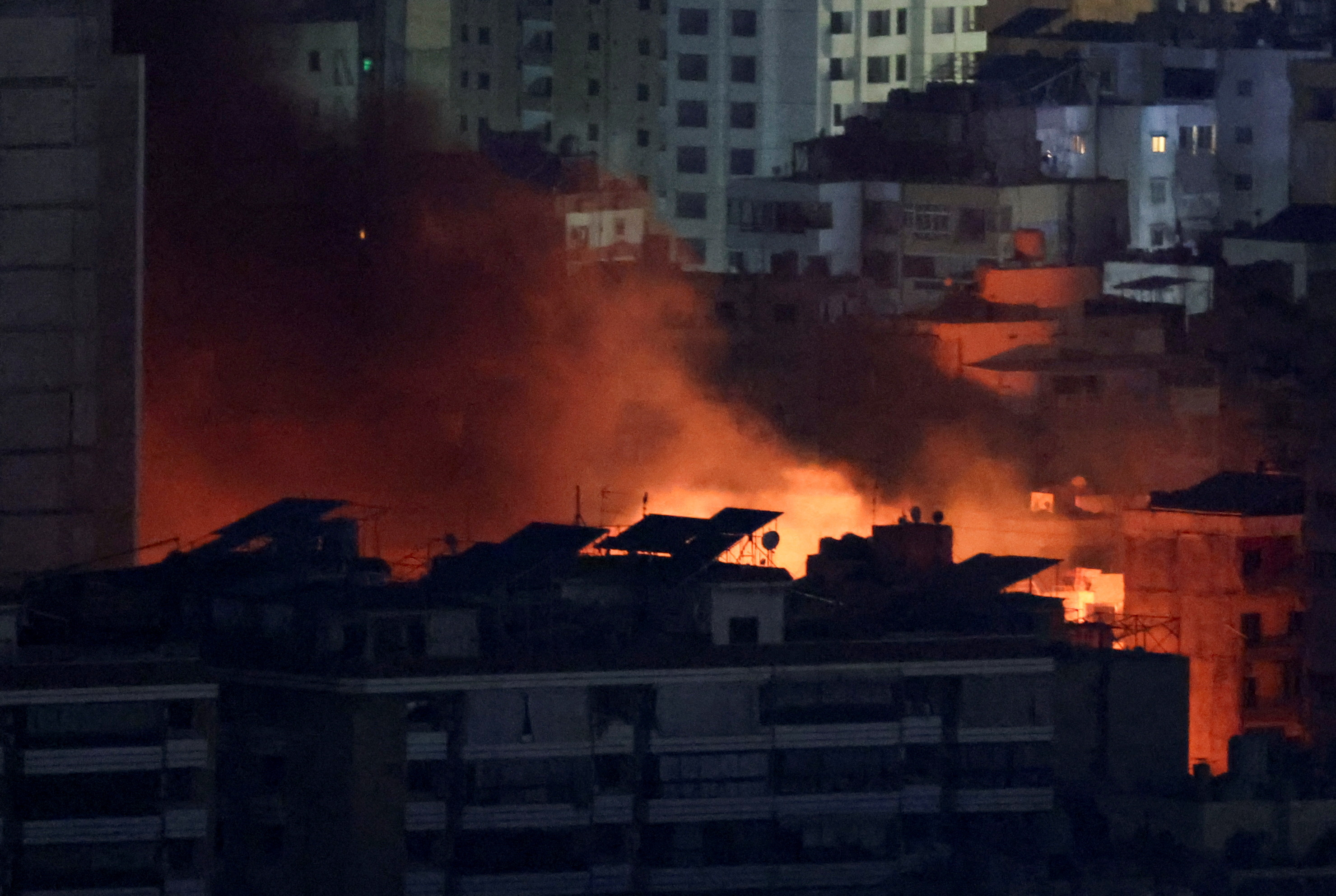 Smoke billows over Beirut’s southern suburbs, after an Israeli strike, amid the ongoing hostilities between Hezbollah and Israeli forces, as seen from Baabda, Lebanon October 25, 2024. REUTERS/Mohamed Azakir.
Smoke billows over Beirut’s southern suburbs, after an Israeli strike, amid the ongoing hostilities between Hezbollah and Israeli forces, as seen from Baabda, Lebanon October 25, 2024. REUTERS/Mohamed Azakir.
Hezbollah has kept fighting despite significant losses, including the death of its leader Hassan Nasrallah. Israel said five of its soldiers had been killed in combat in southern Lebanon, after confirming the deaths of five more on Thursday.
Washington has expressed hope that the death of Hamas leader Yahya Sinwar, a key architect of the October 7 attack, might create momentum for ending the fighting. U.S. and Israeli negotiators are expected to meet in Doha in the coming days to renew discussions on a ceasefire and the release of POWs in Gaza.
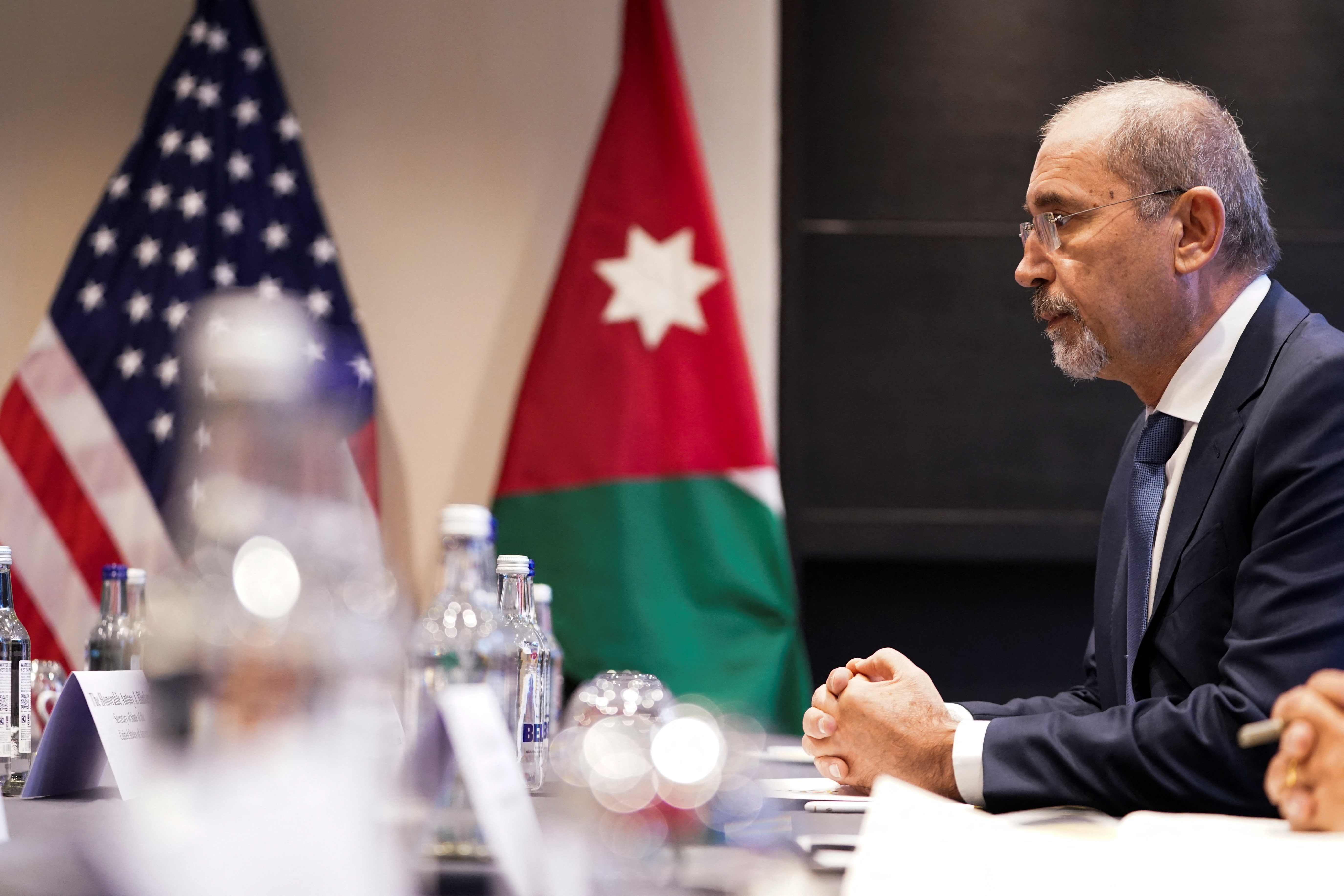 Jordanian Foreign Minister Ayman Safadi meets with U.S. Secretary of State Antony Blinken in London, Britain, October 25, 2024. REUTERS/Nathan Howard/Pool.
Jordanian Foreign Minister Ayman Safadi meets with U.S. Secretary of State Antony Blinken in London, Britain, October 25, 2024. REUTERS/Nathan Howard/Pool.
A Hamas official confirmed to Reuters that a delegation led by the group’s chief negotiator Khalil Al-Hayya arrived in Cairo on Thursday for talks with Egyptian officials.
Safadi said: “We are at the moment now where nothing justifies the continuation of the wars. Guns have to go silent.”


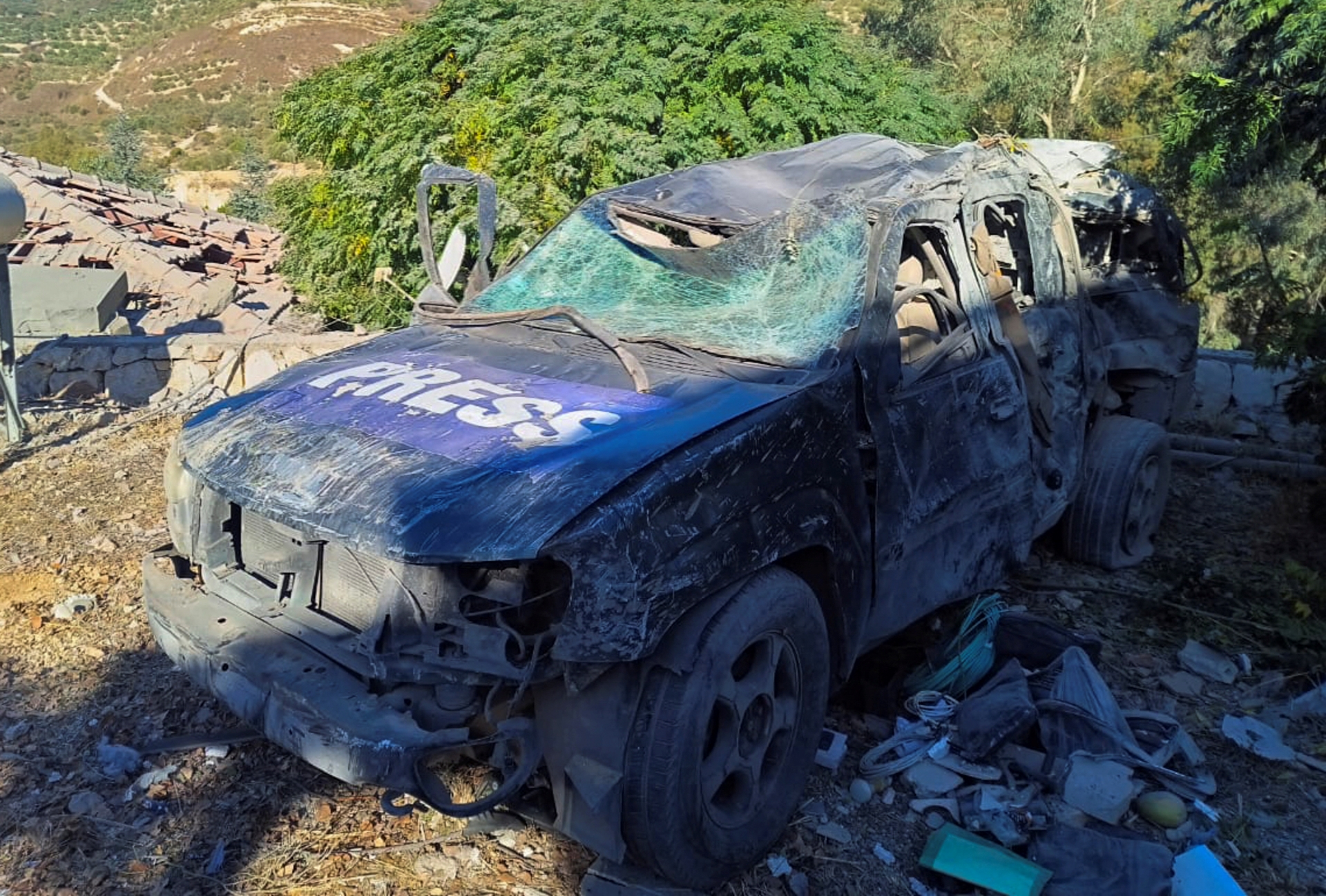

 U.S. Secretary of State Antony Blinken, flanked by Counselor of the U.S. Department of State Tom Sullivan, meets with Jordanian Foreign Minister Ayman Safadi in London, Britain, October 25, 2024. REUTERS/Nathan Howard.
U.S. Secretary of State Antony Blinken, flanked by Counselor of the U.S. Department of State Tom Sullivan, meets with Jordanian Foreign Minister Ayman Safadi in London, Britain, October 25, 2024. REUTERS/Nathan Howard.

